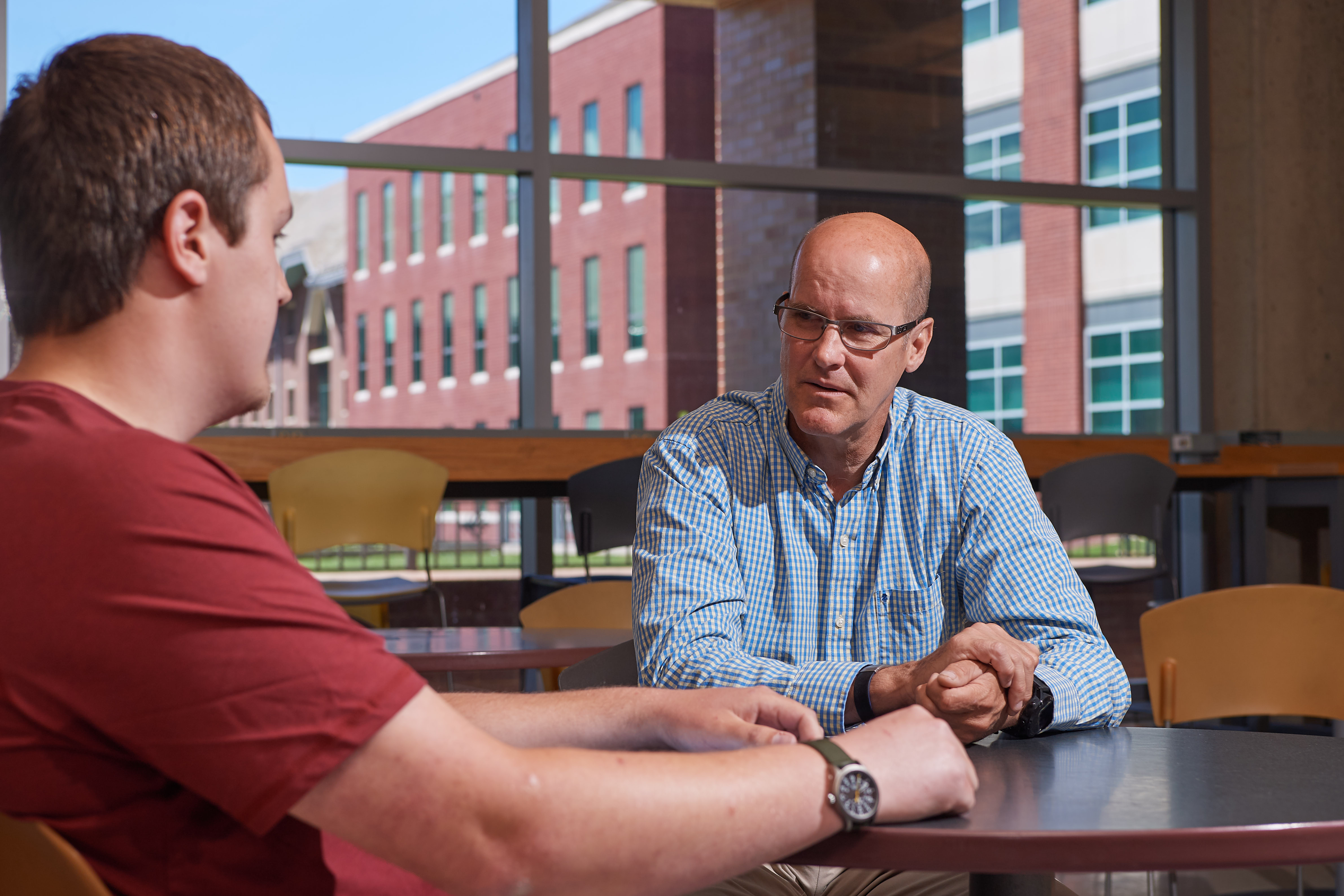University of Connecticut students recently began to collect oral histories from veterans in conjunction with a national initiative led by the Library of Congress.
The national “Veterans History Project” was created in 2000 to collect, preserve, and make accessible the personal accounts of United States veterans and better understand their experiences. These personal narratives, which are usually recorded through video interviews, are housed at the Library of Congress; those created at UConn will also have a home at the Thomas J. Dodd Research Center.
Veterans Affairs and Military Programs director Alyssa Kelleher ’04 (CLAS), ’17 MS, initiated the program here.
“It’s an important project because you are preserving individual stories of veterans for future generations,” says Kelleher. “It’s not all about big things, but benign little things that really give a look into what military service is like, what war is like, what people’s experiences were like, which I think makes it so much more meaningful, especially for someone who isn’t a veteran.”
A veteran who did two tours of duty in Afghanistan and continues to serve in the Connecticut National Guard, Kelleher was interviewed for the project in the early 2010s by Eileen Hurst, a professor at Central Connecticut State University. She brought the program to UConn last semester.
One of the first veterans to be interviewed for the UConn project was Paul Hanlon, an Army veteran who is the project assistant and outreach coordinator at Veterans Affairs and Military Programs.
“When you get away from all the generational stuff, you end up finding out soldiers in the Roman Empire had the same day-to-day struggles as people in the military now,” says Hanlon. “There were the same complaints about their leadership, the food is bad, or they don’t like where they are stationed. It’s the same thing no matter how far back in history you go, and with this project, you get that human touch of connection.”
Everyone writes books about the generals – they are the names you remember. These are the people you don’t remember, and I think that is a failure in our history and the way we write it. — Joshua Bidwell
Joshua Bidwell ’20 (CLAS), a native of Bethel, Connecticut, led the interview with Hanlon. Although Bidwell did not serve in the military, his family has a history of service, including a grandfather who saw action at Iwo Jima in World War II. Bidwell, who is interested in museum studies as a career, interviewed a number of veterans on his own before he got involved with the UConn project.
“I think that we have an unpaid debt to veterans and I don’t think that they are recognized like they used to be,” says Bidwell. “I wanted to find out how World War II veterans were treated when they came home versus [veterans of] successive wars. Vietnam has this stigma of a poor reception for service men versus World War II, which is remembered for being super jubilant and happy.
“I thanked a World War II vet for his service,” Bidwell adds. “He said, ‘That’s a funny phrase, because we didn’t hear that when we came home from war.’ He said it was implied.”
Bidwell says he spent several hours preparing to interview Hanlon.
“I want to know what a normal American veteran’s experience is like,” says Bidwell. “I am not looking for a four-star general story, or the overarching strategy – that is not what this is all about. The majority of the people who are interviewed are regular American men and women in the military doing what they do on an individual scale with squad mates, their company or platoon. Everyone writes books about the generals – they are the names you remember. These are the people you don’t remember, and I think that is a failure in our history and the way we write it.”
Fiona Vernal, associate professor of history and African studies, is tasked with identifying student interns to be part of this project.
“Everyone is an expert in their own life’s experience, and that is the power of oral history,” says Vernal. “It’s the job of the scholars to analyze these sources and see how they fit into a larger pattern or theme. This is about as intimate as oral history gets – when you get a veteran to talk about violence, war, and peace making.”
For information on how to become an interviewer or interviewee in the Veterans History Project, please contact Alyssa Kelleher at UConn Veterans Affairs and Military Programs, 860-486-3802 or alyssa.kelleher@uconn.edu
For information on the Veterans History Project, click here.



